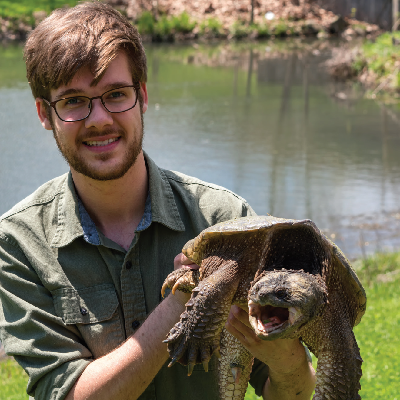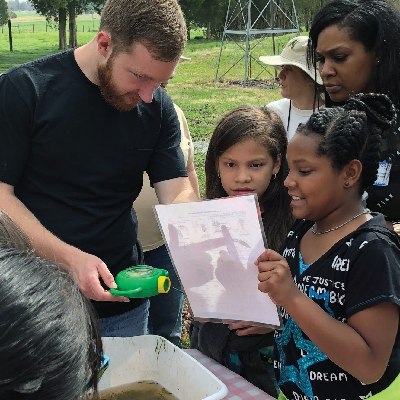Outdoor America 2020 Issue 1
The Izaak Walton League awards two $2,500 national scholarships each year to complement scholarships offered by League chapters and divisions. The national scholarships help educate future conservation leaders by supporting college students pursuing degrees in natural resources and related subjects. These scholarships are made possible and fully funded through a generous annual grant from the Izaak Walton League of America Endowment.
The following students were awarded the League’s National Conservation Scholarship for the 2019-2020 school year.
Ryan Wagner
Wildlife Biology and Conservation
Ohio University
 Conservation Philosophy:
Conservation Philosophy:
“Successful management cannot be achieved without clear guidelines and goals. We need a clear baseline to strive for whenever attempting conservation management. I believe we should aim our management practices at bringing our protected areas as close to pre-European settlement as we can. This requires a thorough understanding of wildlife natural history and interactions with unique habitats. Historical population structures can be very difficult to determine, but are essential if we are to maintain and understand biodiversity.”
Critical Conservation Issue:
“The biggest conservation issues of today involve the loss of biodiversity. We are heading into a mass extinction event that threatens thousands of species worldwide. Climate change, land-use changes, and unsustainable harvesting have all played a role. Road mortality is another driver of species extinction and extirpation. Roads can result in direct mortality through collisions with vehicles, cause habitat fragmentation that cuts individuals off from resources or like species, and can elevate baseline stress levels through noise, vibrations, runoff, and other modifications to the surrounding environment.”
More About Ryan:
Ryan’s future pursuits involve graduate school, including pursuing a doctoral degree in herpetology and road ecology. “I would like to work as a biologist or conservationist for the government. This would allow me to implement real world management strategies to help improve conditions for wildlife and people.”
Seth Hatfield
Environmental Biology
Liberty University
 Conservation Philosophy:
Conservation Philosophy:
“With any conservation effort, I believe it is important to approach the situation holistically, with the intent of benefitting the entire ecosystem being impacted. Likewise, a dynamic approach to conservation leverages the interrelated nature of the environment to create the greatest positive impact. One example of this is the use of native plants in any restoration effort. Native animals and insects are uniquely adapted in their relationship to native plants, and thus will be more at home in habitat consisting of native plants rather than non-natives.”
Critical Conservation Issues:
“As the size and shape of modern civilization continues to expand, so does its impact on the environment. One of the most direct effects of this paradigm is the continued destruction of habitat, and its consequences for the affected species of plants and animals. Habitat loss comes in many forms – in addition to habitat that is destroyed outright, the majority of existing habitat is fragmented, or split into smaller sections by development and infrastructure. This impedes animal migration, and often makes it difficult for animals to find large areas to mate or hunt for food. In addition to this, pollution, whether water, land, or air, is also damaging to plant and animal life.”
More About Seth:
Seth wants to continue his studies in environmental sciences. “Throughout my academic and professional experiences thus far, my focus has been on water resources.”
Know a conservation-minded college student who could use an extra $2,500 for tuition and expenses? Learn more about specific requirements and find application forms.